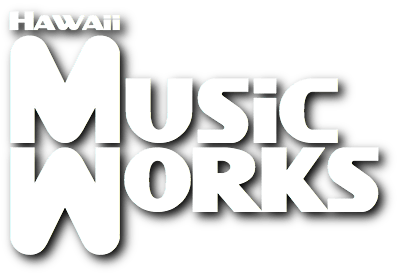CHECK OUT OUR BLOG
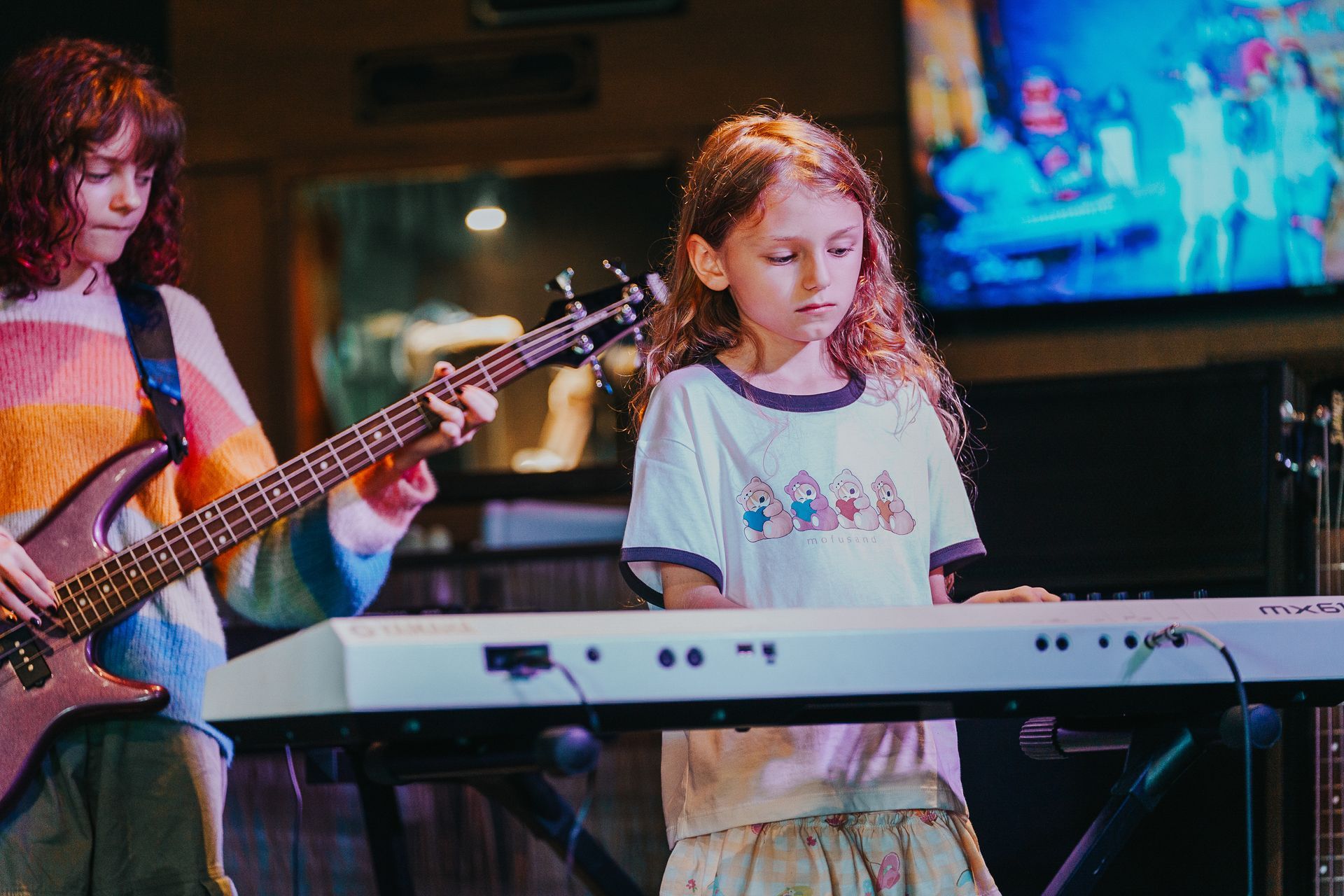
Parents often ask, “When is the recital?” as soon as their child starts lessons. It makes sense! After all, when kids start sports, there are games; when they start dance, there are performances. So, naturally, parents assume music lessons will lead straight to a recital. But here’s the thing—sometimes, students need a little time to get their footing before they’re ready to take the stage. And forcing a recital too soon can turn a fun learning experience into a stressful one. So, when is the right time for a recital? And how do you know if your child is truly ready? Let’s dive in! Why Parents Are So Excited About Recitals We get it. Watching your child play an instrument is exciting! You’ve invested time driving them to lessons, possibly spent a small fortune on an instrument, and you’re eager to see the results. A recital feels like the perfect way to celebrate their progress. But learning an instrument isn’t an overnight process. The first few months (or even the first year) are all about getting the basics down—learning how to hold the instrument, read music, and play simple songs. Rushing into a recital too soon can make a child feel pressured before they even have a chance to feel confident. The Right Time for a Recital Every child is different, but here are a few signs that they’re ready to take the stage: 🎵 They can play a song all the way through without stopping. A recital isn’t just about getting through a piece—it’s about playing it smoothly and confidently. 🎵 They understand musical basics. Things like rhythm, note reading, and playing with good technique all need to be in place before stepping in front of an audience. 🎵 They’re excited (or at least willing) to perform. Some kids are natural performers, while others get nervous. A little stage fright is normal, but if a child dreads the idea of playing in front of others, it might be best to wait. 🎵 They’re okay with extra practice. Preparing for a recital means going beyond just playing the notes—it means refining the piece, polishing the dynamics, and adding a little flair. If a student isn’t ready to put in the extra effort, it might not be the right time. The Right Reason for a Recital A recital should feel like a win —a way for kids to celebrate their hard work and musical growth. What it shouldn’t feel like is an obligation or a way to prove their progress to others. A well-timed recital helps kids: ✨ Feel proud of themselves. There’s nothing like hearing an audience clap just for you! ✨ Build confidence. Each successful performance makes playing in front of others easier in the future. ✨ Learn valuable skills. Recital prep teaches patience, perseverance, and how to stay focused under pressure (skills that are useful in everything). Why Recitals Can Pause Other Progress One tricky part about recitals? Preparing for one means pressing pause on learning new material. Instead of moving forward with new music and skills, a student has to focus on polishing a performance piece. That’s not a bad thing—it’s actually a great skill to develop! But if a child is in the middle of a big growth spurt in their playing, stopping to fine-tune a recital piece might slow that momentum. That’s why some teachers hold off on recitals if a student is making big strides and don’t want to disrupt the flow. Make It About the Music, Not Just the Show At the end of the day, a recital should be a celebration , not a source of stress. If a child is excited, prepared, and ready to shine, then go for it! But if they need more time to grow before stepping into the spotlight, that’s okay too. Music isn’t just about performing—it’s about creativity, expression, and personal progress. And when the time is right for a recital, it’ll be that much more special. 🎶✨
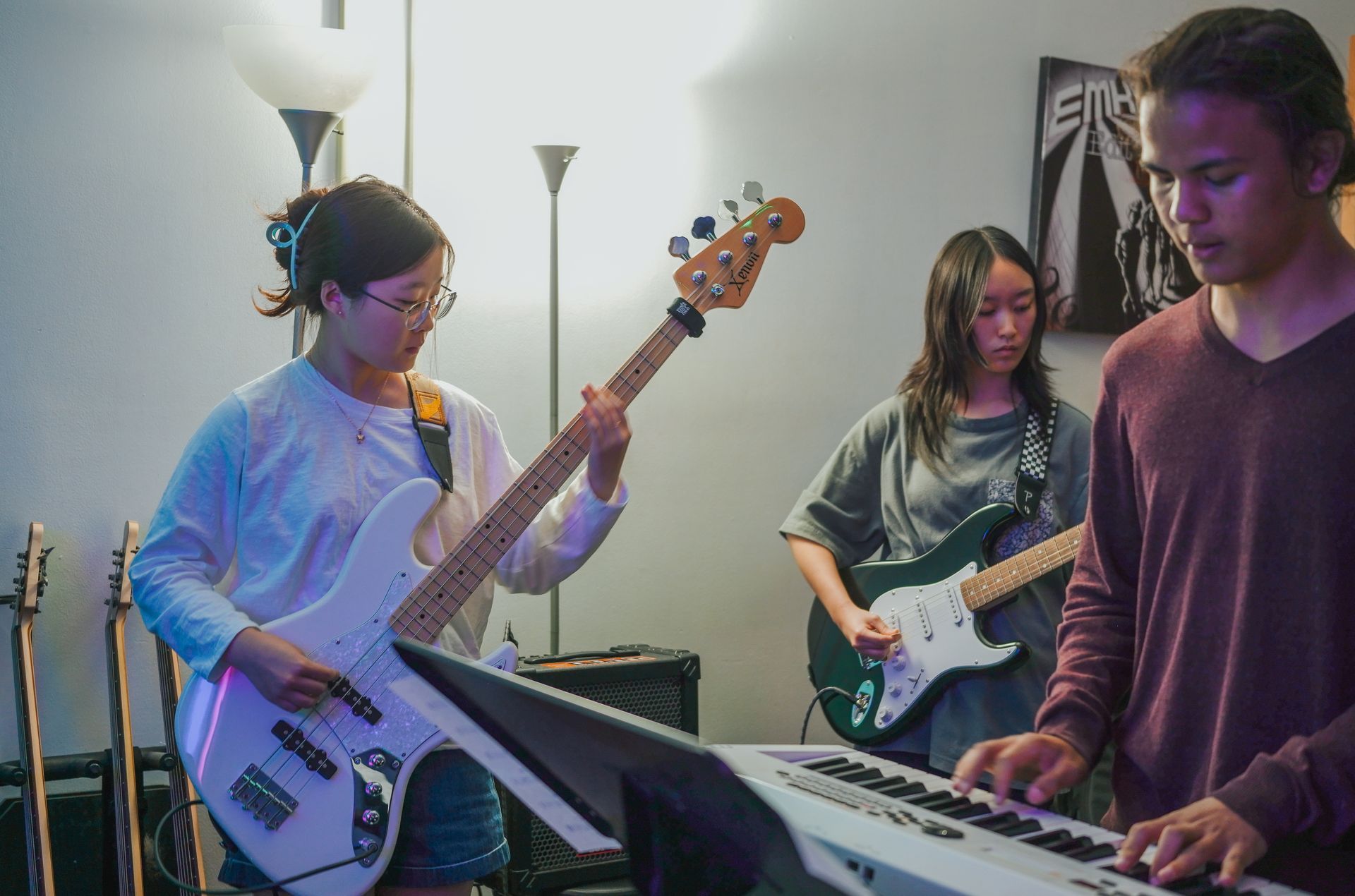
If you’ve never been in a band, imagine a group project—but louder, more emotional, and with actual amps involved. It’s glorious chaos. And also, weirdly, the perfect training ground for life. Here’s what I’ve learned from watching hundreds of kids (and a few brave adults) show up for their bands—and what I hope they take with them long after the final note fades. 1. Show Up (For Real) It’s not enough to just be there. Being in a band means showing up on time, with your stuff, ready to go . But more than that—it’s about showing up with heart. Ready to try. Ready to fail and try again. Ready to make someone else's part sound better, not just your own. You can’t coast in a band. Not for long, anyway. If you didn’t practice? We all hear it. If you’re checked out? Everyone feels it. You quickly learn that being unprepared doesn’t just hurt you—it lets everyone down. 2. Pull Your Weight There’s no “backup” drummer. No “optional” bass player. (Well, unless you want the band to sound like a sad campfire sing-along.) Everyone matters. You matter. Your contribution—however small it may seem—is essential to the bigger sound. And here’s the kicker: nobody can play your part for you . You’ve got to own it. That solo you didn’t think you could nail? That harmony that sounded wobbly last week? If you want the band to succeed, you’ve got to do your part. It’s the best kind of pressure. The kind that makes you rise. 3. Listen Louder Than You Play The best musicians aren’t just shredders—they’re listeners. They pay attention to what the band needs, not just what they want to play. Sometimes that means playing softer so someone else can shine. Sometimes it means biting your tongue when someone flubs a part (because you’ve been that person too). In a band, you learn quickly that the spotlight moves. It’s not always about you. And when it is? You want to be the kind of player others are excited to lift up—not someone they’re quietly hoping will just drop out. 4. Be Flexible, Not Flaky Rehearsals don’t always go as planned. Sometimes someone forgets their gear. Sometimes a song just isn’t working and you have to scrap it. In band life (and real life), you learn to pivot. To try new things. To let go of perfect and lean into progress. But flexibility isn’t the same as flakiness. Your bandmates need to know they can count on you— even when things are hard . Especially then. There’s a big difference between “let’s try it a new way” and “I didn’t feel like practicing so I’ll just wing it.” 5. Celebrate the Weirdness Band kids? They’re quirky. They’re bold. They’ve got opinions about guitar tones and favorite snare heads. And you know what? That’s what makes a band work . Everyone brings their flavor. The quiet kid who writes lyrics like poetry. The loud one who keeps things from getting boring. The one who organizes the set list and remembers everyone’s water bottle. In a band, you learn to appreciate the weird. Not just tolerate it—but need it. Because without all those odd little puzzle pieces, the music doesn’t happen. So What’s the Takeaway? Band rehearsals teach you how to be a better teammate, a more empathetic human, and a more reliable friend. They teach you how to mess up in front of people, laugh it off, and try again. They show you how to listen, how to lead, and how to take a backseat when someone else needs to step up. We don’t always realize it in the moment—but when a kid learns to thrive in a band, they’re learning how to thrive in life. The world could use more people who know how to show up, pull their weight, and harmonize with others—even when the song changes mid-set.
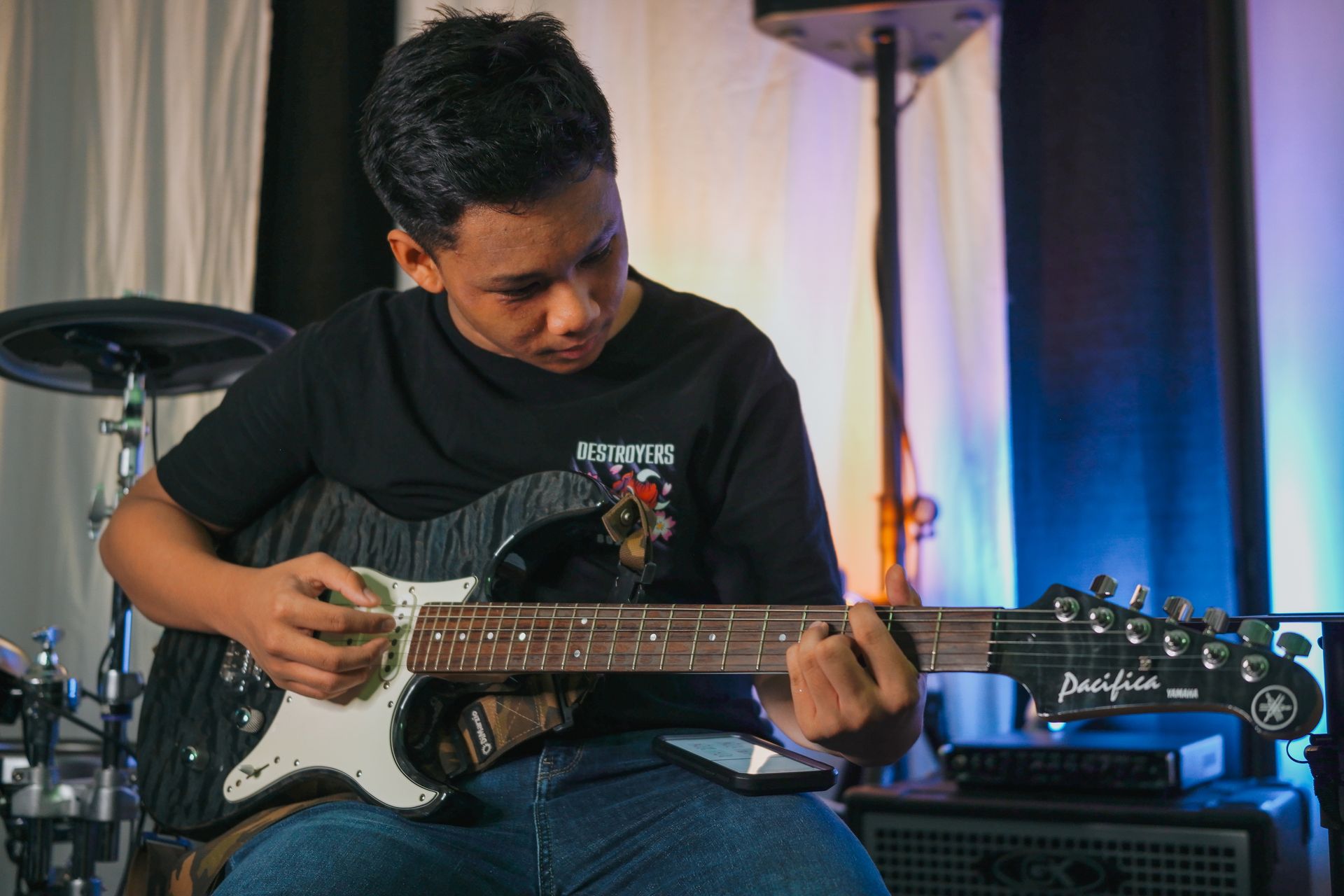
You know that moment when a kid hits the wrong note and immediately freezes, winces, or apologizes?
We see it all the time. Sometimes they laugh it off.
Sometimes they mutter, “Ugh, I’m so bad at this.”
Sometimes they shut down altogether. And every time, we say the same thing: “Good. Now we’ve got something to work with.” At Hawaii MusicWorks, we don’t just tolerate mistakes — we encourage them. Because if you’re not messing up, you’re not really learning. And let’s be real — no one ever nailed a guitar solo by playing it safe. 💥 Mistakes = Data Mistakes are information . They tell us: Where the student’s confidence dips What needs more practice Where muscle memory hasn’t kicked in yet That “oops” moment? It’s not failure. It’s a neon sign that says, “Let’s look at this part together.” If a student never messes up, we assume they’re either (A) not being challenged enough or (B) hiding behind what’s easy. 🧑🎓 A Note to Parents: Please Don’t Do the Homework We say this with love:
If your child turns in a perfectly written theory assignment, and you “helped a little,” we can usually tell. But here’s the thing — we don’t want perfect papers. We want to see what they don’t understand yet . If everything is filled out correctly but they can’t explain it in class, we know it’s not sticking.
Mistakes on homework help us figure out where to jump in and reteach.
Correct answers done by someone else? Not so much. So please: resist the urge to swoop in and clean things up. Progress is messy, and that’s okay. (And yes, it’s totally fine to encourage them to try or review together — just let the learning be theirs.) 🧠 What Happens When Kids Avoid Mistakes Perfectionism can sneak in early — especially in high-achieving kids. And when it does, it gets loud: “If I mess up, I’m not good enough.” “If I can’t play it right, I shouldn’t play it at all.” “I hate this. I’m bad at this. I want to quit.” That kind of thinking doesn’t just block musical growth — it chips away at confidence. So we work hard to reframe the mistake.
We say things like: “Cool, let’s break that part down.” “Your brain just gave up early — let’s help it stay in the game.” “That mistake means you’re in the zone where real progress happens.” 👂 What Mistakes Actually Teach Here’s what students learn when we let them mess up: Resilience – They bounce back instead of crumbling. Adaptability – They learn to recover in real time. Focus – They start noticing what their fingers, ears, and brain are doing. Confidence – Yes, confidence! Because they learn they can mess up and keep going. Bonus: These are life skills. Not just music skills. 🔁 We Model Mistakes Too Our teachers don’t pretend to be perfect — because we’re not. We flub chords. We forget lyrics. We laugh when things go sideways. We’re also usually the first ones to say, “Oops! Try that again.”) That modeling gives kids permission to relax. It tells them: “It’s okay to be where you are.” 🧑🎤 Progress Over Perfection We’re not here to raise musical robots. We’re here to raise confident, expressive, joyful musicians.
The kind who: Mess up and keep playing Take risks Get back up when they fall off the rhythm Know that perfection isn’t the goal — progress is And the truth is:
Some of the best performances we’ve ever seen weren’t perfect — but they were real . So yes, we encourage mistakes in music class. Because mistakes are where the music begins. And that moment when a student messes up, laughs, and keeps going? That’s the stuff of rockstars.
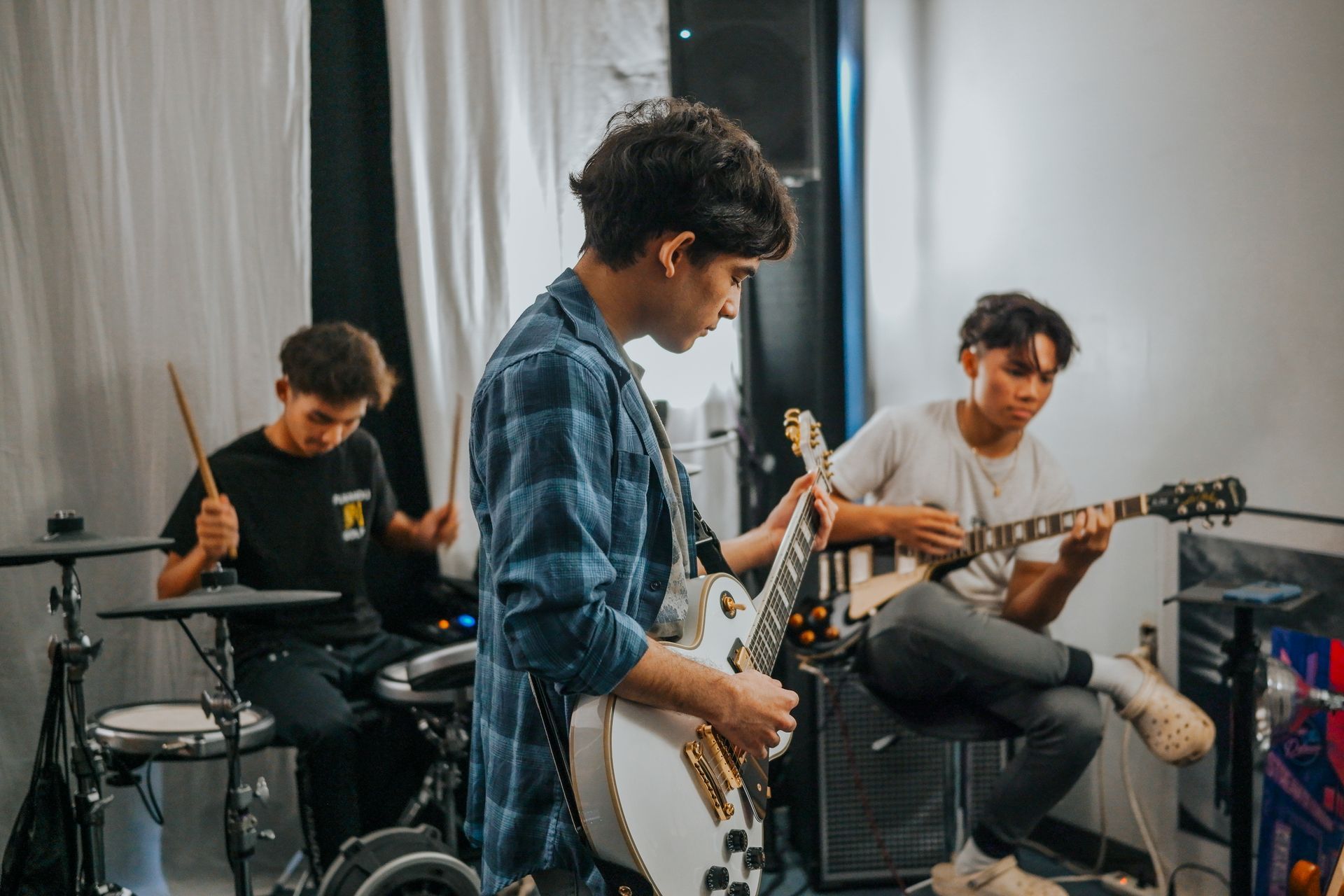
If you think our most memorable students are the ones who come in playing full concertos or shredding like mini Hendrixes, think again. The students who surprise us the most? They’re often the ones who struggle. The ones who almost quit. The ones who start out quiet, timid, distracted, overwhelmed — or totally convinced they “just don’t have it.” And then one day… something clicks. 🔥 Not always dramatically. Not overnight. But enough that we stop and think, Whoa. Look at them now. 🌱 It’s not about talent. It’s about growth. We’ve seen students who: Took months to get through their first song… and are now leading their band. Refused to sing a single note out loud… and now own the mic. Bombed their first few lessons… and now show up early, eager to help tune guitars for others. They weren’t the “naturals.” They were the ones who kept showing up. They asked questions. They got frustrated. They failed and came back again. And we couldn’t be prouder. 😬 The early days can be deceiving. Every music teacher has had this experience:
A student walks in, clearly unsure. Maybe they’re fidgety, avoid eye contact, or seem totally uninterested. Sometimes they make zero progress for what feels like forever. And you think, “Are they even enjoying this?” But then they show up early. Or they crack a joke in class. Or they nail a rhythm you know they used to struggle with. And suddenly, it’s like they’ve found their groove — literally. 🧠 Progress doesn’t always look like progress. We’ve learned to look for the small wins: They’re making fewer excuses. They’re practicing without being told. They’re starting to take pride in their playing. They’re raising their hand. Offering to go first. Laughing when they mess up instead of shutting down. That stuff? That’s gold. That’s what real growth looks like — especially in kids. 🧑🎤 The best part? They don’t even know they’re surprising us. We don’t always tell them right away. (Sometimes we’re too busy fist-pumping silently.) But when students surprise us, it’s not because they “suddenly got good.” It’s because they started believing in themselves — even just a little. And that shift? That’s the moment we live for. 💛 So if you’re the parent of the “quiet one”… the “unmotivated one”… the “still can’t remember which chord is G” one… Hang in there. Because those are the kids who sometimes blow us away the most. They’re deep thinkers. Late bloomers. Quirky creatives. Future performers with stories to tell. They may not be the loudest in the room — but when they finally plug in and turn up? It’s unforgettable.
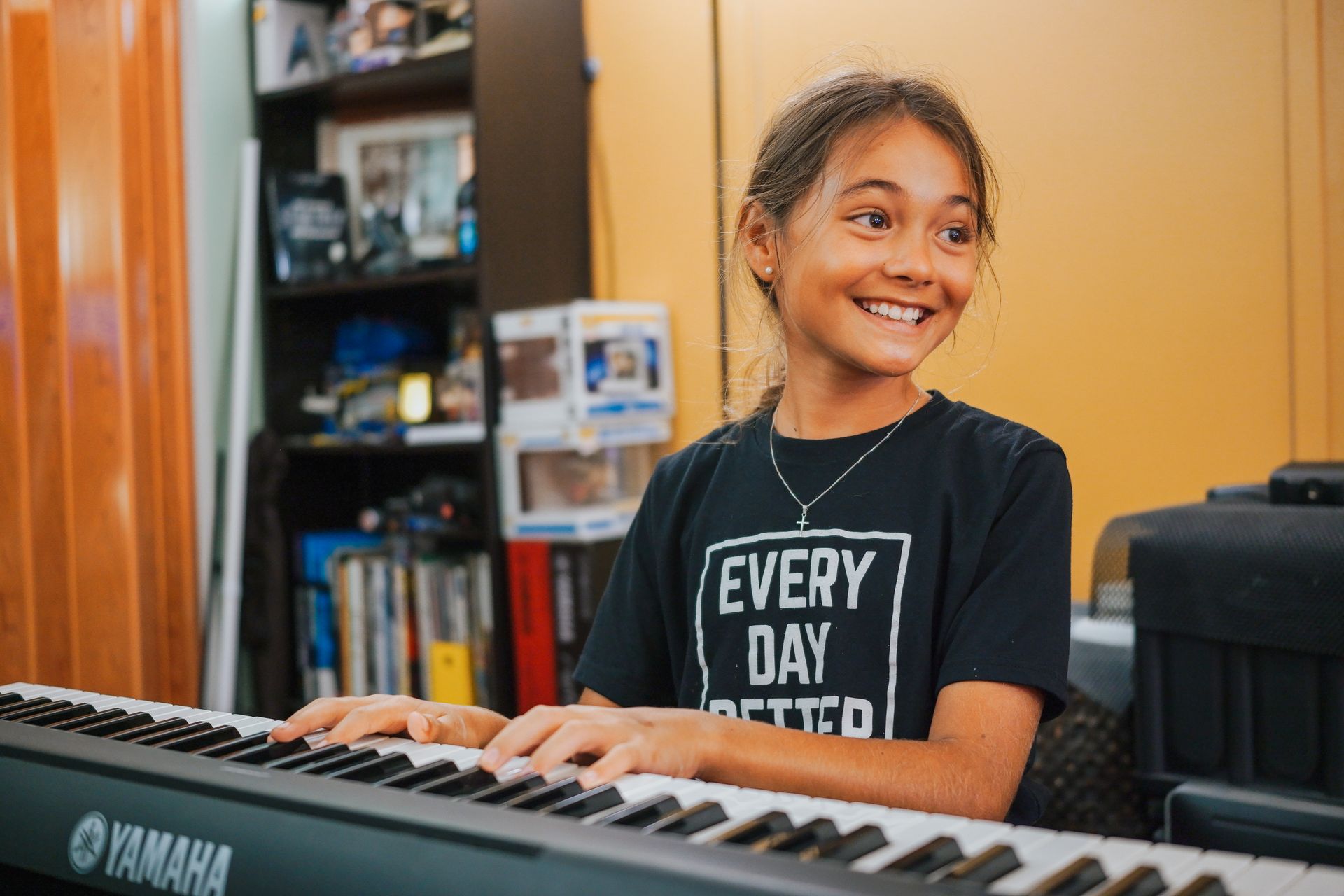
“I don’t want them to be a professional musician or anything…” We hear this a lot—from kind, supportive parents who are just trying to explain where their expectations are. (Spoiler: we’re not building conservatory bots here. We’re building humans who love music.) We also hear things like:
“They’ve got the ear.”
“He’s really talented.”
“We make them practice 30 minutes a day.” Which are all fine things to say. But if you’ve been around our school long enough, you know that none of those things guarantee a student will thrive. Some of the most naturally talented kids struggle when the music gets hard—because they’ve never had to wrestle with it. Some students practice religiously every day—and still don’t grow, because they’re just clocking time, not doing the work. So if you’ve ever wondered what actually makes a great music student at Hawaii MusicWorks, here it is: It’s Not About… Talent.
Natural ability might give a student a head start, but it won’t carry them through a song they don’t know, or a piece that just won’t click. In fact, sometimes it makes the hard parts harder—because they’re not used to having to try. Practice Minutes. We know a lot of families try to help by setting a daily practice goal—30 minutes a day is a common one. And we totally get the intention behind it. Routine, consistency, accountability? All good things. But here’s the truth:
Thirty minutes of the wrong thing doesn’t move the needle. If a student is zoning out while running through a song they already know just to “fill the time”… If they’re distracted, checking their phone between chords… If they’re practicing the wrong section of the song because they forgot what the assignment actually was… That’s not quality practice. That’s musical busywork. If practicing looks like doom-scrolling TikTok with an instrument in your lap,
we’re gonna call it what it is: a light stretch, not a workout. Real progress comes from focused, specific effort. It’s slowing things down. Targeting the hard parts. Being mentally in it, not just physically near your instrument. And yeah—it’s not always fun, but that’s the muscle we’re trying to build. The ability to stay engaged when it’s boring, tricky, or just not your favorite thing that day — That’s what separates someone who plays music from someone who grows with it. Give us five intentional minutes over thirty distracted ones any day. Performance Ambitions.
We’re not here to create future pop stars. (Unless that’s the dream—then great, we’ll help.) But our focus is growth, confidence, and a lifelong relationship with music. Not résumé building. So What Does Matter? Curiosity Students who ask questions, mess around with what they’re learning, and chase their own ideas are the ones who light up. It’s not about getting everything “right”—it’s about being engaged, creative, and awake in the process. Consistency Not “never missing a day.” Not “perfect practice.” Just—keep going. Students who show up, even when it’s tough, even when they’re busy or stuck, end up surprising themselves. That’s the muscle we care about: the one that keeps coming back. Flexibility Music is a rollercoaster. One week you’re slaying your song, the next week you forget how to count to four. Students who learn to roll with it, take feedback, and pivot? They’re golden. The Right Kind of Support When parents focus on encouragement rather than enforcement, things go way better. Ask what they’re working on. Let them show you. Celebrate the trying, not just the perfect performance. Trust the process—it’s louder and messier than you think, but it works. Final Thought At Hawaii MusicWorks, we don’t sort students into “serious” or “not serious.” We don’t rank them by talent. We meet them where they are—and we help them grow. Whether they’re here to rock the stage, write their own songs, or just have a creative outlet after school, we want them to feel seen, challenged, and proud. So if you’re wondering what makes a student “good” at music—it’s not the magic, it’s the mindset. And we’re here for all of it.
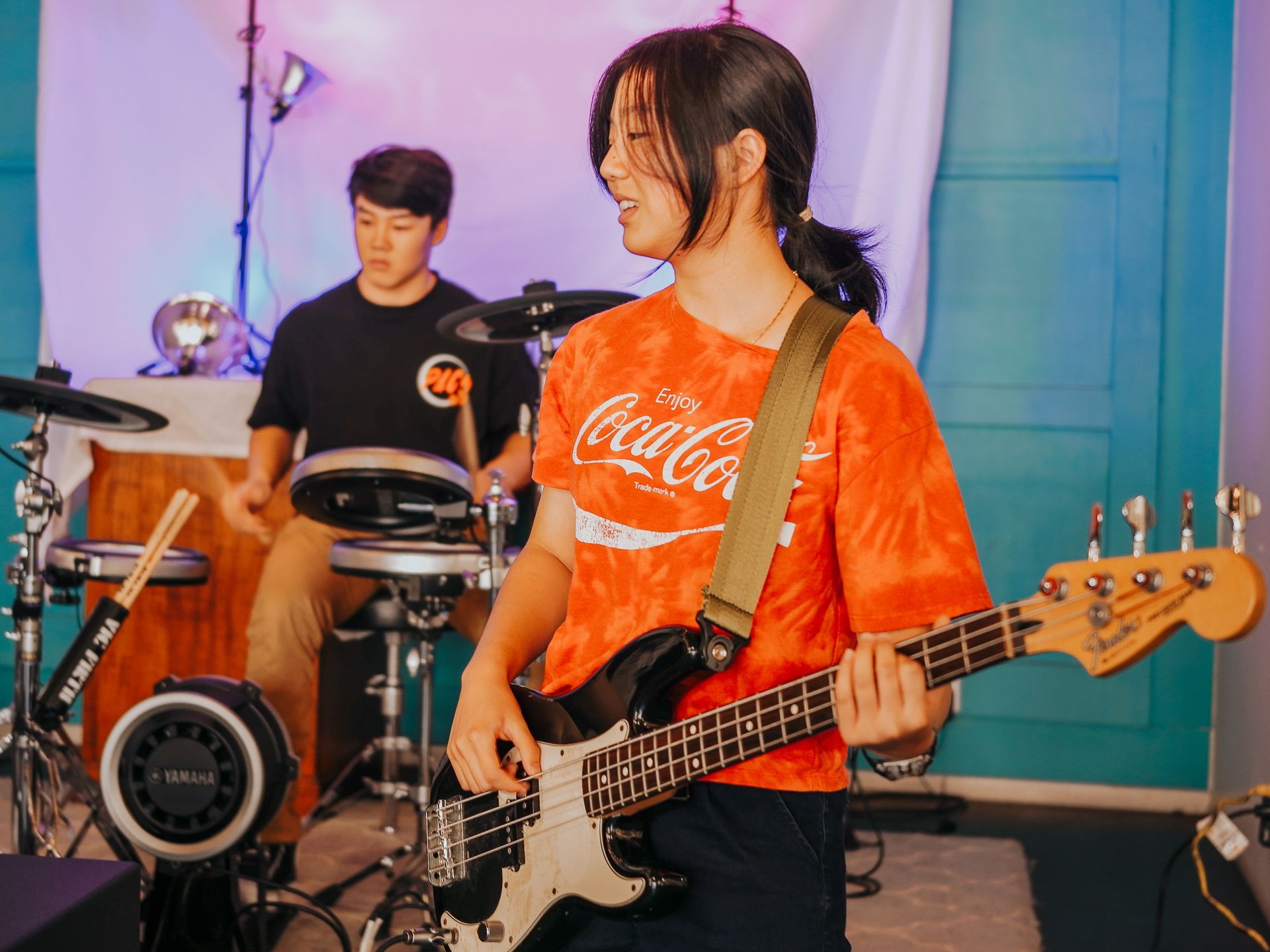
Practice is Key to Learning Music lessons typically happen once a week. That’s just 30 minutes out of 168 hours in a week. Without an instrument at home, there’s no way to reinforce what was learned in the lesson. Imagine trying to learn a sport but only touching the ball during practice—it just wouldn’t work! Regular playing time is necessary to build muscle memory, improve technique, and make steady progress. Interest Grows With Accessibility One of the biggest misconceptions is that a child (or adult) will develop interest first, and then you can invest in an instrument later. But in reality, interest often builds because they have the instrument in front of them, ready to play whenever inspiration strikes. Having easy access to an instrument allows for spontaneous playing, creativity, and exploration—all of which help fuel motivation and enjoyment. Frustration Sets In Without an Instrument Imagine signing up for swimming lessons but never having a pool to practice in outside of class. It wouldn’t be long before you felt stuck and frustrated. The same thing happens with music. Without regular practice, lessons start to feel repetitive rather than rewarding, and students may feel like they’re not improving. That’s when they lose interest—not because they don’t enjoy music, but because they aren’t able to engage with it in a meaningful way. You Don’t Need the Most Expensive Instrument Investing in an instrument doesn’t mean you have to buy the most high-end model. There are plenty of affordable beginner instruments that sound great and are comfortable to play. The key is to get something that functions well enough to make learning enjoyable. A poor-quality instrument can be discouraging if it doesn’t stay in tune or is too hard to play. If you’re unsure what to buy, ask the instructor for recommendations! Final Thoughts If you’re investing in music lessons, investing in an instrument is just as important—if not more. It’s the tool that makes learning possible. Without it, progress is slow, frustration builds, and the excitement of learning music can quickly fade. But with the right instrument at home, music lessons become an engaging, rewarding journey that can last a lifetime. So go ahead—get the instrument! Your future musician will thank you.
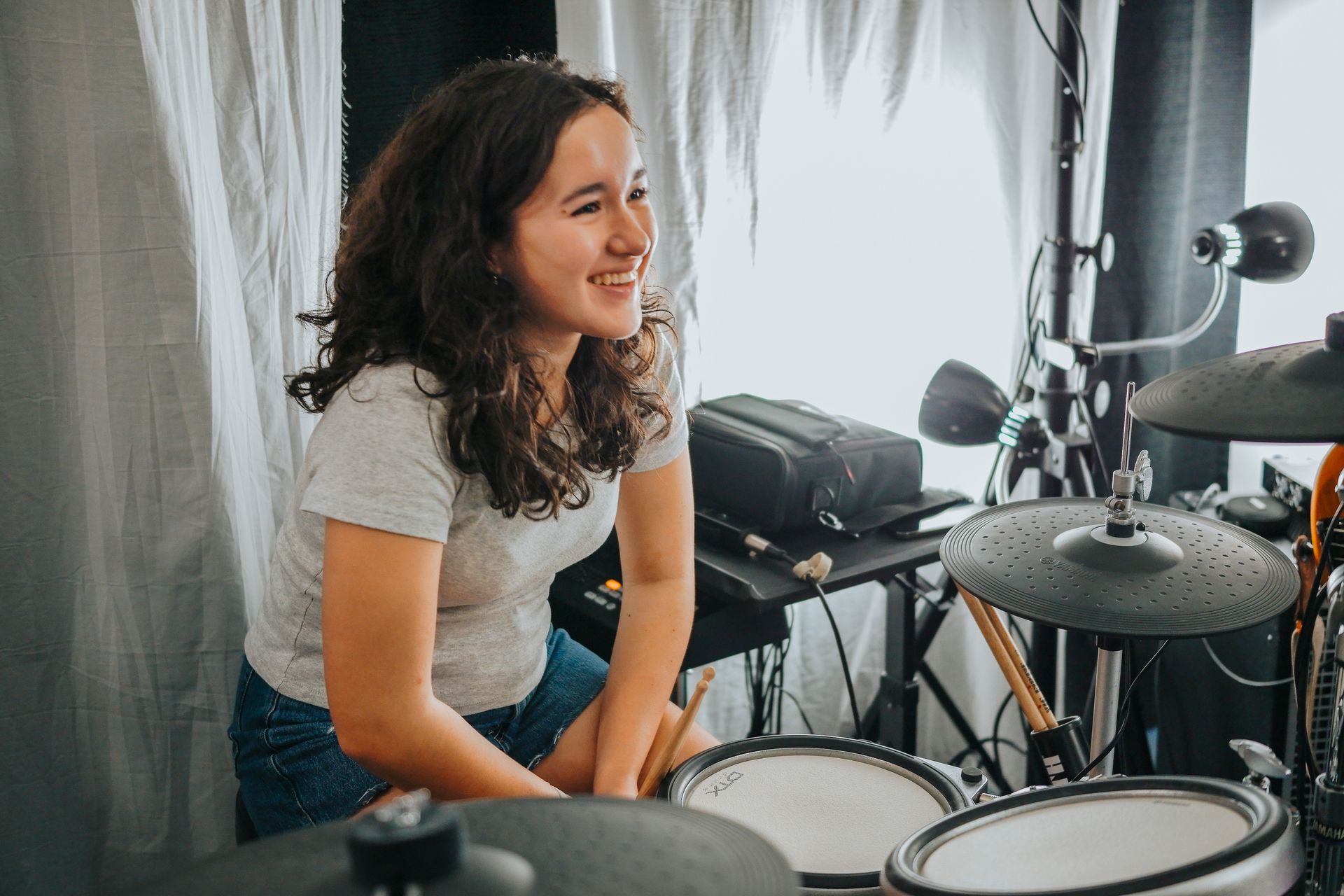
The best choice depends on their personality, learning style, and even family dynamics (because let’s be honest, a drum set in a small apartment might not be ideal!). Here’s what to consider when helping your child find their perfect match. 1. Consider Their Personality & Recommended Starting Ages Each instrument has a unique “vibe,” and some naturally suit different personalities. It’s also important to consider age appropriateness: Keyboard (Starting at Age 4+) – Great for kids who enjoy structure and patterns. It’s an excellent first instrument because it visually lays out music theory concepts and doesn’t require fine motor skills or finger strength like stringed instruments. Plus, you don’t need to invest in an acoustic piano—portable keyboards are affordable, take up little space, and often have headphone options for quiet practice. Guitar (Starting at Age 7+) – Perfect for independent and creative kids who love experimenting with sound. Since guitars require finger strength to press down on the strings, waiting until around age 7 helps avoid frustration. Drums (Starting at Age 7+) – A great fit for kids who like movement and rhythm. While younger kids love banging on things, formal drum lessons require coordination and focus, which develops around age 7. Voice (Starting at Age 7+) – If your child sings all day, why not develop that natural talent? Formal lessons start around age 7 when kids can focus and understand breath control. Bass (Starting at Age 8+) – Ideal for team players—bassists provide the foundation in a band and tend to be the steady, supportive types. Like guitar, bass requires finger strength, so waiting until at least age 8 is best. 2. Match Their Learning Style Visual learners do well with keyboard, where notes and patterns are laid out clearly. Kinesthetic learners thrive with drums, guitar, or bass. Auditory learners may love voice lessons since they rely on listening and pitch matching. 3. Think About Your Home & Lifestyle Do you have space? A full-size acoustic piano or acoustic drum set requires room. If space is an issue, consider options like portable keyboards, or drum pads. How much noise can you handle? Drums are loud, but electronic kits with headphones can help. Are you okay with carrying an instrument? Guitars are portable; pianos… not so much! 4. Let Them Try Before Committing If your child is excited about music but unsure where to start, we can help! Our teachers can provide an introductory session where your child gets hands-on experience with multiple instruments to see what feels right. Sometimes, just a little trial time can help them make the best choice. 5. Support Their Choice (Even If It’s Unexpected!) Maybe you pictured your child playing classical keyboard, but they’re drawn to electric guitar. That’s okay! Supporting their choice increases their motivation to stick with it. The right instrument should inspire your child—not feel like a chore. With a little guidance, you can help them find their musical passion!
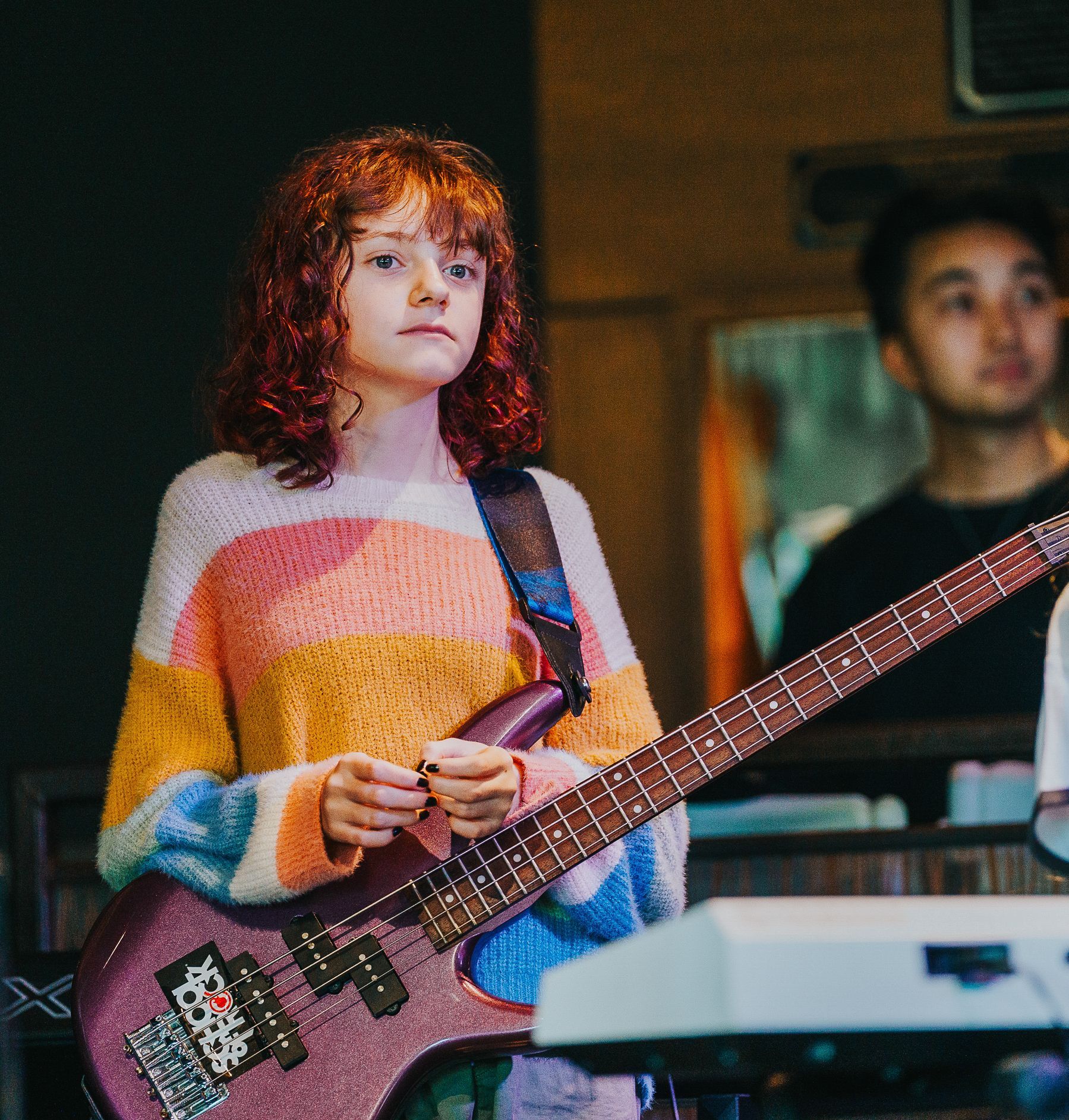
If you’ve ever said, “Let’s wait and see if they like lessons before we buy an instrument,”
you’re not alone — and I don’t blame you! Music lessons are a commitment. You want to be sure your child enjoys it before making a bigger investment. Totally reasonable, right? Well… yes and no. Here’s the thing most parents don’t realize — and I say this with so much love:
Without an instrument at home, it’s really hard for a child to succeed. Music Is Like Any Other Skill Imagine putting your child in soccer but telling them they can only touch the ball at practice once a week. Or signing them up for swim lessons but not letting them get near a pool except during class. They wouldn’t improve.
They wouldn’t gain confidence.
They might feel embarrassed if they were always behind the others. That’s exactly what happens when a child comes to music class but doesn’t have an instrument at home. Lessons Without Practice = Stuck in Neutral In music, practice isn’t extra — it’s essential .
That’s where the real growth happens. That’s when things finally click. That’s where they go from “this is hard” to “hey, I can play something!” When a child only touches an instrument once a week at their lesson, it’s like starting from scratch every time.
They don’t get to feel success.
They don’t get to build momentum.
And most importantly — they don’t get to connect with the music. We want them to light up with excitement when they figure out a new chord or beat. We want them to feel proud when they can play something. That only happens with time spent at home, just them and their instrument. In Group Classes, It’s Even Tougher If your child is in a group class and doesn’t have access to an instrument during the week, they’ll start to feel it fast. Other kids start pulling ahead. The class moves on. Your child struggles to keep up. And kids feel that. They’re smart. They know when they’re behind, even if we don’t say it out loud. Some kids push through. But many start to disconnect, lose interest, or feel defeated — not because they don’t like music, but because they never had the tools to really try. So, What Should You Do? 🎹 Get a keyboard.
🎸 Pick up that guitar or bass.
🥁 Find a practice pad or entry-level drum kit. It doesn’t have to be fancy. It doesn’t have to be the final instrument. But having something at home gives your child the best shot at success — and joy. You don’t need to go big right away. We’re happy to guide you to budget-friendly options that make sense for your family and your child’s level. Final Thought: Invest in the Connection When you give your child an instrument, you’re not just investing in “stuff."
You’re investing in their growth.
In their confidence.
In their ability to express themselves.
In their ability to fall in love with music — on their own time. And that, my fellow music parents, is what it’s all about. ❤️ With support,
Aunty Dale & the Hawaii MusicWorks Team
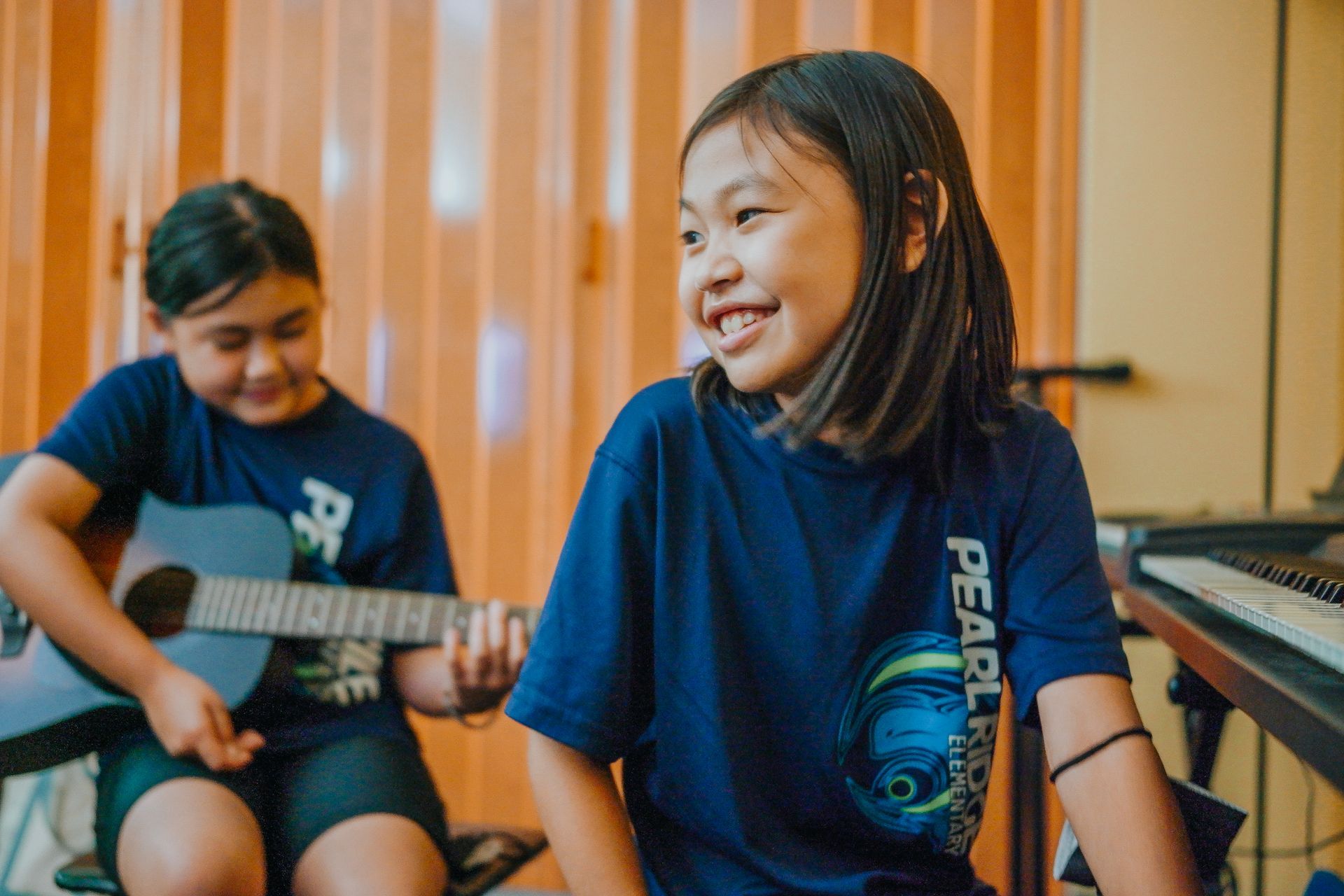
If you’re raising a shy child, you know the delicate dance: They’re thoughtful. Observant. Often incredibly kind.
But when it comes to speaking up, joining in, or being the center of attention?
That’s where the retreat begins. You want to honor who they are—but you also want to help them bloom. Music can be that safe, magical space where blooming begins. 🎹 Music Doesn’t Demand — It Invites Unlike sports or school presentations, music doesn’t shove kids into the spotlight right away. No crowds, no microphones, no pressure to “perform.” Music begins gently, giving kids the time and space to explore at their own pace. Now, if you’re thinking, “Oh, my shy kid needs some one-on-one attention,” we’ve got you covered with private lessons, where they can shine in a quiet, comfortable setting, with a teacher who’s got their back. But hold up, because guess what?
We also offer group classes , and you know what? Many of those groups are packed with other shy kids too! And here's the magic:
They bond over being a little unsure.
They giggle quietly when they all mess up the same rhythm.
They learn together, with zero pressure to be perfect.
And, before they even realize it, they start cheering each other on, quietly but genuinely. It’s like finding your musical tribe. And let’s be real: sometimes, finding a group of other kids who are a bit shy is exactly the confidence boost they need. It’s a low-stakes, fun way to develop musical skills and social confidence—without any of the “uh-oh” moments that can make kids shut down. 🎶 Expression Without Words For many shy kids, speaking up can feel intimidating. It takes a lot of courage to voice their thoughts and feelings, especially in a new environment. But music gives them another outlet for self-expression—one that doesn’t require words. Music is a universal language. It allows kids to say things like: “This is how I feel.” “This is what I love.” “This is who I am.” A melody, a rhythm, a beat—they can all express the unspoken parts of a child’s heart and mind. And for kids who are shy, this can be the first time they feel like they’re truly being heard. We’ve seen kids who started out barely whispering in lessons go on to sing solos or play confidently with others, not because they were pushed, but because music helped them build the confidence to show up as themselves. 💡 Small Wins = Big Confidence The key to helping shy kids is creating small, non-overwhelming steps where they can see their own growth. These little victories add up to a sense of accomplishment and self-assurance over time. In music lessons, these wins can look like: Successfully playing a short song or musical phrase Receiving positive feedback from a teacher they trust Making a breakthrough in understanding a difficult concept Joining a group performance or simply participating in group activities These are the moments that start to build their confidence—not just as musicians, but as people. They get to see that they can try new things, take risks, and succeed, all in a space where they feel supported. And over time, the growth isn’t just musical—it’s personal. 🧑🏫 Our Teachers Get It At Hawaii MusicWorks, we know that shy kids need a little extra understanding, patience, and encouragement. Our teachers have worked with a wide range of personalities, and they know how to create environments where kids feel safe to explore, express, and grow. They also know that not all shy kids are the same. Some need more one-on-one attention to build confidence, while others thrive in group settings where they can connect with others. That’s why we offer both private lessons and group classes—because we want every child to feel comfortable, no matter their personality. Our teachers are experts at: Gently drawing kids out without overwhelming them Celebrating each milestone, big or small, and making kids feel proud of their progress Creating group settings that foster a sense of community and understanding Adjusting their teaching styles to fit the needs of each child Whether your child excels in one-on-one lessons or feels more comfortable in a group, we can help them find the best fit and start their musical journey on the right foot. 🎵 The Quiet Ones Often Have the Richest Inner Music If your child is shy or introspective, you may sometimes feel like they’re missing out on the louder, more outgoing experiences of their peers. But don’t worry—they’re not broken or incomplete. They just operate at a different rhythm. Music can help your child tap into that inner rhythm and express themselves in ways they may not have known were possible. It provides a space where they can develop at their own pace, build social connections without feeling overwhelmed, and gain the confidence to step out of their shell on their own terms.
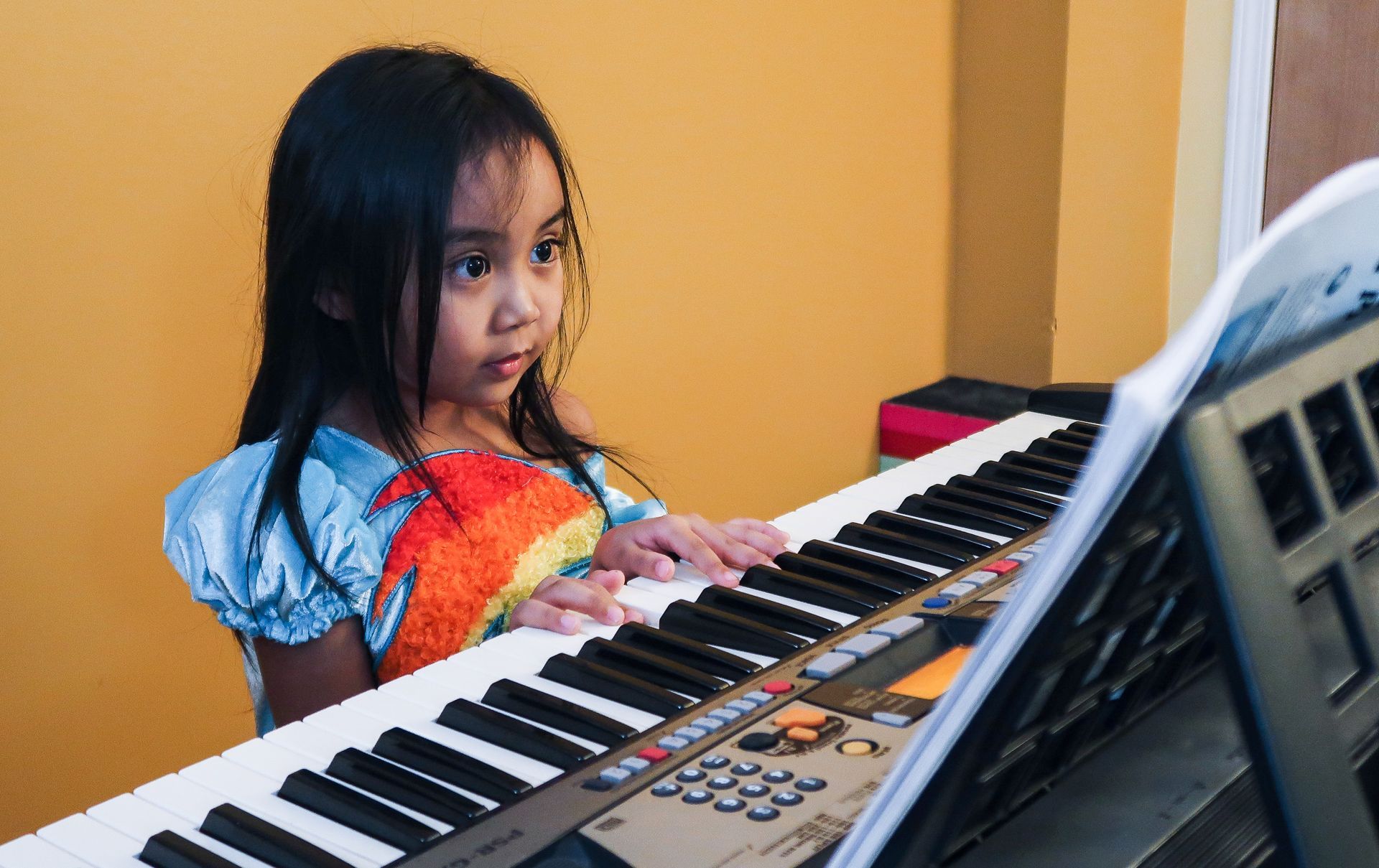
🎶 Not sure what instrument your child should start with?
Take our fun & totally unscientific quiz to find out which one fits best! 😄
(You can always switch later — promise!) Question 1 — Age Range
👶 How old is your child? A. 4–6
B. 7–10
C. 11+ Question 2 — Personality Vibe
💫 What describes them best? A. Quiet and observant
B. Bouncy and energetic
C. Outgoing and theatrical
D. Thinker/problem-solver Question 3 — What do they do when no one’s watching?
🎤 You catch them… A. Singing to themselves or stuffed animals
B. Tapping on every surface like it’s a drum
C. Pretending to be on stage
D. Playing with puzzles, games, or drawing patterns Tally Up Your Answers! Mostly A’s: 🎹 Keyboard
They’re gentle, thoughtful, and need something they can ease into. Piano builds a solid foundation, and gives them a safe place to express themselves. Mostly B’s: 🥁 Drums
This kid’s got rhythm — and energy to burn! Drums are physical, fun, and a great outlet for active learners. Mostly C’s: 🎤 Voice or Guitar
Your child is a natural performer! Guitar gives them confidence, and voice lets them shine front and center. Mostly D’s: 🎹 Keyboard
Structured minds love piano — it’s logical, pattern-based, and deeply satisfying for brainy kids. Final Thoughts ✨ Remember: There’s no wrong place to start.
Pick one, try it for a bit, and we’ll help guide the next step if they want to explore more. 📩 DM us if you’re still unsure — we’re happy to help you choose!
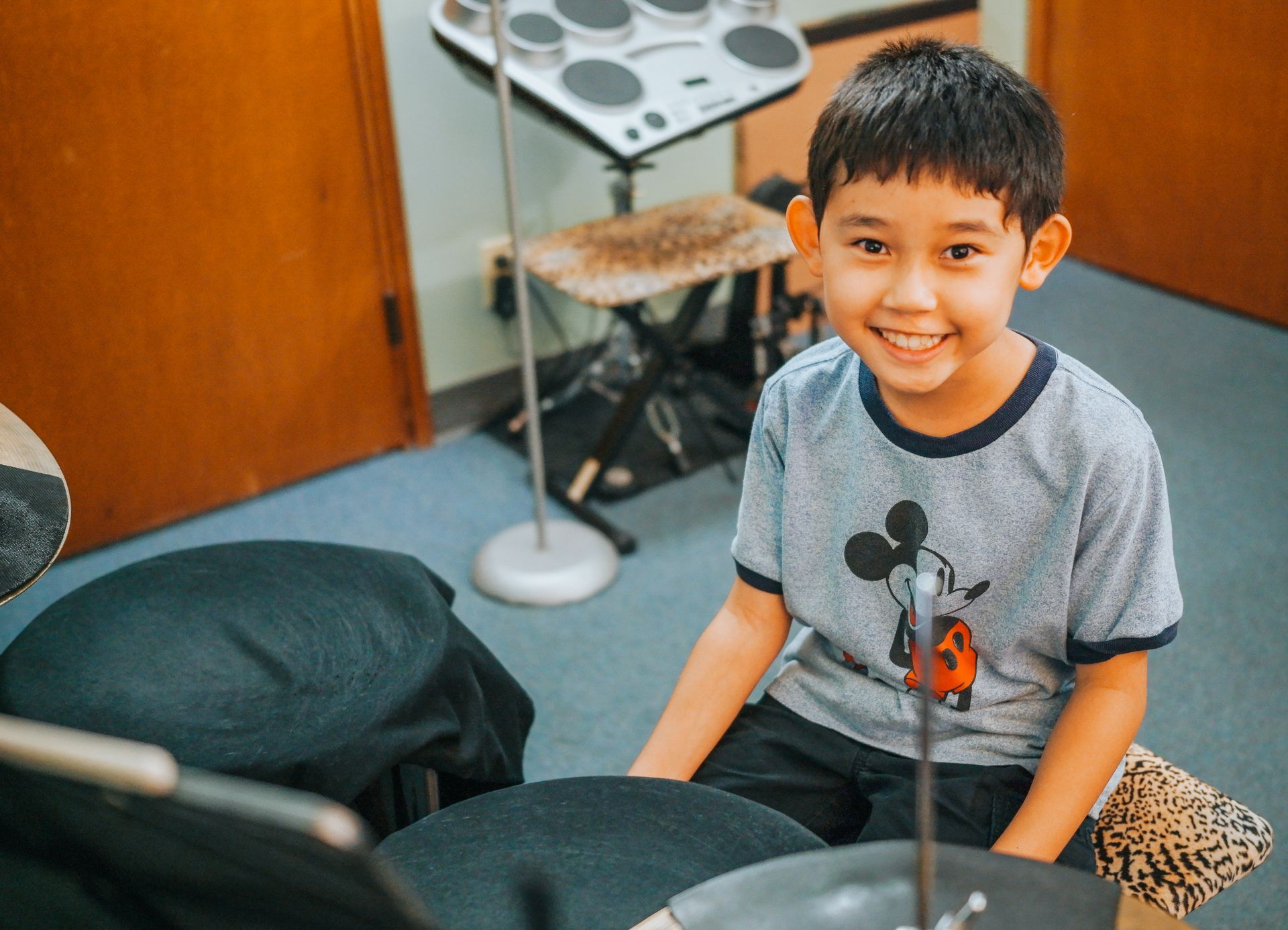
Every so often, a parent will ask me:
“What if they pick the wrong instrument?”
Or,
“What if we commit to piano and later they want to do drums?” First of all — I get it. As a parent, I know how much time and energy (and yes, money!) goes into music lessons. You want to get it right. You want to make sure the effort pays off. But here’s the truth that’s helped me — both as a mom and as someone who runs a music school: 🎶 There is no “wrong” instrument to start with.
Because learning music is learning music — and it all builds on the same foundation. The Building Blocks Are the Same When your child learns piano, or voice, or ukulele, or drums, they’re not just learning that instrument. They’re learning: Rhythm (how to count, feel the beat, keep time) Tempo (how fast or slow a piece should go) Time (when to come in, when to pause, when to wait ) Listening (to themselves, to others, to the whole sound) Coordination (hands, feet, voice — sometimes all at once!) Musical awareness (dynamics, patterns, phrasing, flow) These skills transfer beautifully from one instrument to another. So the drummer who once took piano has a stronger sense of musicality.
The singer who plays guitar understands harmony better.
The bassist who started on drums locks into grooves like a pro.
The keyboardist who switches to voice already knows how to read music and follow a beat. It’s all connected. Switching Isn’t Failing — It’s Evolving Kids grow. Interests shift. That’s part of the process. But when a student decides to try something new, they’re not starting from scratch — they’re building on what they already know. They’re starting the second chapter of their musical story, and chapter one gave them the tools to move forward with confidence. This is why we always say: 🎵 There’s never a wasted moment in music.
It all counts. It all adds up. So, Where Should They Start? Anywhere. Seriously. Pick the one they’re most excited about. The one they ask about. Or the one that seems like a good match for their age or personality (we can help with that, too). If they stick with it forever? Amazing.
If they pivot later? Also amazing. What matters most is that they start. Because every step in music builds skills, confidence, and creativity that go way beyond just learning an instrument. Final Thought (From One Music Mom to Another) I know it can feel scary to pick a starting point. But you really can’t go wrong. Whether your child begins on keyboard or voice or drums or bass, they’re gaining something valuable. Something lasting. Something that will travel with them into the next instrument — and maybe even into the rest of their life. So let’s take the pressure off choosing “the right one.”
Let’s just begin. ❤️ With music and encouragement,
Aunty Dale & the Hawaii MusicWorks Team
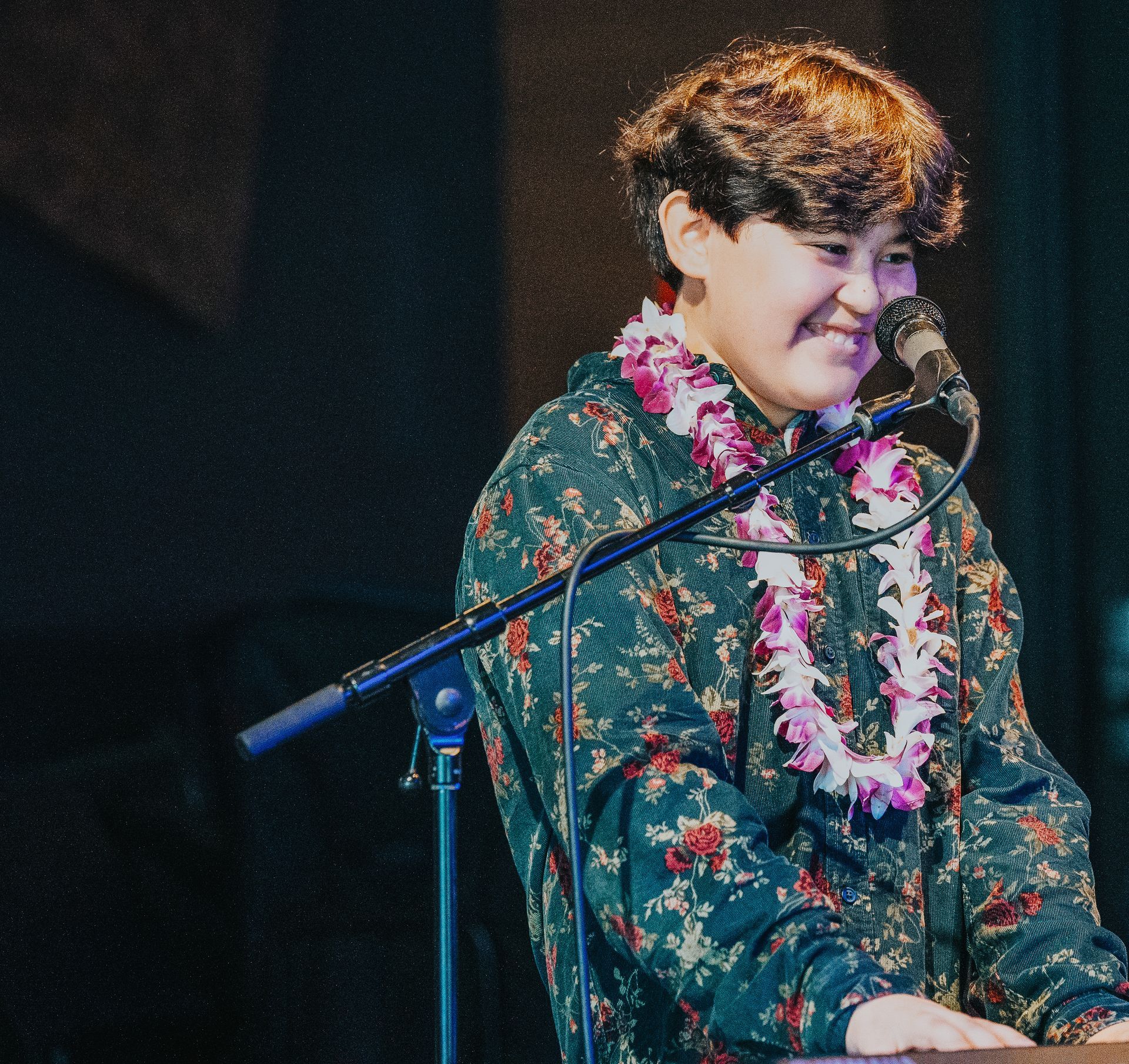
Normalize the Nerves First things first—let your child know that stage fright is completely normal. Even professional musicians, actors, and public speakers feel nervous before performing. Explain that those butterflies in their stomach aren’t a sign of failure but actually a sign that they care about doing well. Reframing nerves as excitement can help them embrace the experience rather than fear it. Practice, Practice, Practice The more prepared your child feels, the more confident they will be. Encourage regular practice so they know their piece inside and out. Repetition builds muscle memory, making it easier to perform even when nervous. Try simulating a performance at home—have them play for family members, record themselves, or even practice in front of a mirror to get used to the idea of being watched. Start Small and Build Confidence If your child is especially nervous about performing in front of an audience, start with low-pressure situations. Have them play for a sibling, a friend, or even a pet. Gradually increase the audience size until they feel more comfortable. Participating in group performances or duets can also help ease them into solo performances over time. Teach Relaxation Techniques Help your child learn simple relaxation strategies to calm their nerves before they perform. Deep breathing exercises, stretching, or even shaking out their hands can release tension. Some kids benefit from visualizing themselves playing confidently on stage—encouraging them to picture a successful performance can be a powerful mental tool. Respect Their Comfort Level While performing can be a valuable experience, it’s important to recognize that not every child is comfortable being in the spotlight—and that’s okay! Some kids thrive in front of an audience, while others prefer to enjoy music in a more private setting. If your child experiences intense anxiety that doesn’t improve with time and practice, it’s okay to step back and reassess. Music lessons should be about joy and growth, not pressure and stress. Recitals and public performances are not the most important part of learning music; what truly matters is that they’re developing skills, confidence, and a love for playing. Focus on the Fun, Not Perfection Remind your child that performing is about sharing music and having fun, not about being perfect. Mistakes happen to everyone—even professionals! Instead of dwelling on what could go wrong, encourage them to focus on the joy of playing and expressing themselves. The more they enjoy performing, the less intimidating it will feel. Be a Supportive Cheerleader Your encouragement means the world to your child. Praise their efforts, not just their results. After a performance, celebrate their bravery and focus on what went well. Avoid dwelling on mistakes; instead, highlight the progress they’ve made and remind them that every performance is a learning experience. Lead by Example If your child sees you handling pressure with confidence, they’ll learn to do the same. Share your own experiences with nervousness and how you’ve worked through it. If you’re a musician yourself, consider playing a piece alongside them—it can make performing feel more like a shared adventure rather than a solo challenge. The More They Perform, the Easier It Gets Like anything in life, performance confidence grows with experience. The first few times might feel scary, but the more your child gets up in front of an audience, the more comfortable they’ll become. Over time, they might even start looking forward to the thrill of performing! But if they truly don’t enjoy it, that’s okay too. Music is about personal growth, creativity, and enjoyment—not just performing in front of others. Final Thoughts: Helping Your Child Shine Stage fright doesn’t have to hold your child back—it can be transformed into positive energy that fuels their performance. But at the same time, it’s essential to respect their feelings and recognize that public performance isn’t for everyone. By normalizing nerves, practicing regularly, and focusing on the joy of music, your child can build confidence in a way that feels right for them. No matter what, the most important thing is that they’re learning, growing, and finding happiness in music—whether that’s on stage or in the comfort of their own home.
